 Former Californian hip-hop artist Snob Scrilla – also known as Sean Ray – is now based in Sydney, Australia, where he will release his debut album Day One through Ivy League Records in April 2009. Two singles from his first EP, There You Go Again and Chasing Ghosts, have already garnered radio airplay and critical acclaim, while Houston and next single Heartbreak Scorsese are set to continue the trend. Snob kindly shares his thoughts on the state of the music industry and describes life as a full-time musician in 2009.
Former Californian hip-hop artist Snob Scrilla – also known as Sean Ray – is now based in Sydney, Australia, where he will release his debut album Day One through Ivy League Records in April 2009. Two singles from his first EP, There You Go Again and Chasing Ghosts, have already garnered radio airplay and critical acclaim, while Houston and next single Heartbreak Scorsese are set to continue the trend. Snob kindly shares his thoughts on the state of the music industry and describes life as a full-time musician in 2009.
Hey Snob! Elevator pitch: give us an overview of your work and your musical career thus far!
My background in music is almost is as varied as it could possibly be. I’ve done everything: from club nights, to writing pop songs for other artists, to hosting nationally-syndicated radio shows.
With this project specifically, Snob Scrilla, it’s a bit of a confused child musically. When creating music as Snob, I set out to create music that’s not limited by a marketing scheme or hindered by a target market.
I want Snob Scrilla to represent all of the random and eclectic musical tastes that I have, and that’s what makes it a bit of a unique thing in this day and age of assembly-line production in the industry.
It’s 2009. Music is a commodity that we’re often unwilling to pay for. The modern musician’s dilemma: how do you get heard? How do you convince the audience that you’re worth the time?
You’re not going to convince anybody of anything when it comes to music. That’s not the point of the art. The way you get people onside – though that shouldn’t be the goal either – is by making relevant artistic expressions that people will see a value in listening to.
I’m not a fan of all of his antics, but one thing Kanye said with regards to his last album has really stuck with me: “art wins in the end.”
I really believe that. I think that artistic integrity and genuine intentions will always succeed in the end, and that’s where we see the most valuable contributions on the part of the artistic community. Not the convoluted messages that we receive in the formulaic, cookie-cutter albums that are increasingly pumped out these days.
I think that in order for musicians to get heard, they have to embrace the free music model.
Artists and labels need to understand that there is no point trying to protect their music from downloads and torrents, because we live in an age where everything will be available for download for free, no matter how much they try to stop it.
People are only going to buy my album or pay to download my single is if there is a perceived value. And as far as I’m concerned, that’s how it should be.
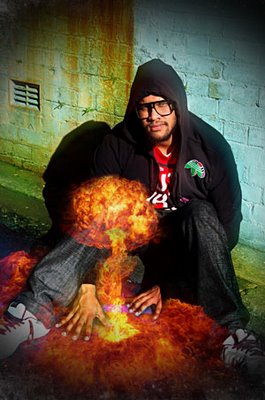 Labels won’t get away with screwing over consumers anymore, by pumping cash into one single and neglecting the rest of a project only to release a sub-par product. It’s time for everybody to step their game up!
Labels won’t get away with screwing over consumers anymore, by pumping cash into one single and neglecting the rest of a project only to release a sub-par product. It’s time for everybody to step their game up!
Your recorded work is a promotional tool to get people through the door at your shows. Agree or disagree?
I can understand how you could see it like that, but I’d have to disagree.
While my recorded material is obviously going to be key to getting people to shows, I don’t think that it should be the goal.
Okay, so what is the goal of your recorded material?
Well there’s different goals for different art. For my new album specifically, my goal was to create an honest and accurate reflection of where I was at in my life.
That sounds like a simple – and probably common – goal, but realistically, it encompasses a lot of things; from my personal life, to my beliefs and standpoints.
Wrapping that all into one cohesive project was difficult, but that was the goal for the album!
As a music fan, I’ve picked up the notion somewhere along my travels that most albums are released at a loss, and that tickets and merchandise are where the initial outlay is recouped. True or false?
Yeah that is very true. Most of the time, albums are released at a loss. If they’re not released at a loss, then there’s still a huge recoupment for marketing and production expenditures that were incurred during the creative process.
This is especially true for debut albums, because there’s generally not a huge fanbase already established and waiting for your project to drop so they can buy it.
So, for new artists especially, shows and merch is definitely the thing that will get you through the period between releasing and the time it will take you to recoup the money you owe before you get to see any profit.
Now that we’ve established your viewpoints on the distribution of your art, tell us about your latest album, and your plans for its release.
Day One is the title of my new project. It’s my debut album as Snob Scrilla and it’s coming out April 24th 2009. It’s the follow-up to last year’s EP, and it’s been the culmination of a lot of growth for me as an artist. The last two singles – There You Go Again and Chasing Ghosts – both had a really hype vibe, and I think a lot of people expected that to be the sound of the entire album, but since I recorded those tracks I’ve grown a lot as an artist and that’s not really the case.
The latest single Heartbreak Scorsese has been doing pretty well after being added to Triple J, as well as getting some spins on Nova as well. Next I’ll be shooting a video for that track and releasing some cool remixes.
So yeah, it’s been a very long time coming and I’m very hyped about it man. I can’t wait for everyone to get the chance to finally hear what I’ve been working on!
Hell, it’s a smooth album man, so you’ve got every reason to be excited. Anyway, you’re signed to Ivy League Records. How’d that relationship begin? I’m intrigued as to how artists get signed; it’s a story that’s not often told. Approached in a smoky bar after a killer show, or something more clean-cut?
Ha the story of how I got signed is much more clean-cut actually. Basically, when Triple J started playing my first single There You Go Again, Pete Lusty from Ivy League heard the track and dug it enough to get in contact with me. We met a couple times, got along really well, and the entire thing was done in a couple weeks.
Kickass story, but we’re missing a slice: how did you start getting played on Triple J?
When I first moved to Australia in 2002 fresh out of high school, I immediately got busy in the music industry doing any and every job, feature, appearance, or opportunity I could find with one goal: making connections.
I spent about four years doing that before I even started the Snob Scrilla project. One of the connections that I made was Maya Jupiter, who was doing the hip-hop show on the Jays at the time. She kicked the track to Richard Kingsmill (Triple J’s music director), and the same week he added it to his 2008 new music show.
W hat advice do you have for Australian artists who think they’ve got the talent to be heard?
hat advice do you have for Australian artists who think they’ve got the talent to be heard?
I think the main thing is getting your music out there any way that you can! You have to be focused on the long-term, not the short-term gain. Like I said, I was grinding for four years before I even started recording.
Now, I’m not saying that everybody else should wait as long as did, I just mean people need to look at the end goal more than getting an immediate return. This game is a marathon, not a sprint, so take steps now to set yourself up later, and not the other way around!
Excellent advice. It reminds me of wine businessman Gary Vaynerchuk, who states that legacy is more important than currency. Take the longview, instead of the possibility of immediate financial gain, because thanks to the internet, everything about your actions throughout your life will be easily visible to anyone. I think you’d dig his stuff.
Alright, so why Ivy League? How much creative control are you allowed? I notice you’re slipping a few free tracks out to your Twitter friends…
I decided to run with Ivy League because they were the label that really understood what I was trying to do with the project, and so they give me a lot of creative control.
I’m not the type of artist that likes to have someone basically craft the entire project, or get other people to, and then just put me on to execute. I don’t see the merit in that approach, and that’s the main reason I stayed away from some of the other offers that we had for the Snob Scrilla project. Ivy was the best home for making Day One happen the way I had envisioned it from the beginning.
As far as leaking tracks.. yeah I tend to do that from time to time. As I always say, I’m a huge advocate of free music. I think it’s something that we as artists need to increasingly embrace, and I do it wherever I can.
As far as Twitter, it’s kind of ideal for leaking stuff because only the kids that are really paying attention are gonna catch what you’re even doing. It’s cool, ’cause that way I know the ones who are getting the free music are the ones who are gonna appreciate it the most.
So kids, if you want to hear new stuff for free before anybody else gets it, follow me on Twitter and I’ll look after you! Haha.
That’s awesome that Ivy League are big on allowing you creative control. Do they provide promotion and booking services too, or are these aspects handled by another agency? Do you think it’s best for one company to direct all of your interests – management, production, promotion, booking – or do you believe in spreading the love between several organisations?
Initially, I was very much for trying to do everything myself. But I think that’s a very cliche, egotistical artist thing to do, to feel like nobody can look after your art the way you can. This is true in some regards, but once you really start to make any head way with your career you are going to want to have good people looking after your respective areas. And when you get to that point it’s best not to have those people in the same building.
It’s good to keep some checks and balances to make sure that everyone is doing what they need to be doing to keep you moving forward. If you have everything under the one roof, you put too much control in the one place. It works best when it’s spread out using specialised groups rather than a localised body and spread too thin.
Beyond Ivy League, can you give us an idea of some of the other groups you work with, and how you made those connections? Your music videos are pretty sweet; who takes care of those? Tie-in question: since you’re clearly still a big proponent of the music video, do you think that the videos hold the same value or importance in this era of broadband and streaming media, as they did a couple decades ago, when the format was first introduced as a promotional tool?
The Harbour Agency handle my bookings, and that connection came about after having them come to a few shows, being impressed with the show, and approaching me. I’m also working with a group called The Chosen Few who now look after all of my artwork and print image [note: including the images throughout this article]. They’re so mad underground that they don’t have a website!
As far as the videos I’ve had a variety of people that I worked with, in fact each video has been a different director. But I’ve been taking an increasingly active role with each vid. In fact with Houston I actually wrote the treatment and co-directed the clip.
I do think that videos still play a big role. Not in the same way that they did before in the promotional sense, but I’m a very visual writer so getting to have a video that compliments the message being conveyed in a song can complete the whole picture sometimes, in a way that you couldn’t get from just listening to the song. It adds more to what can be perceived and inferred and therefore increases the impact of a message.
At what point did it become too time-consuming to manage yourself? Or, considering your recent growth in popularity due to Triple J exposure, do you think it’d still be feasible to handle management, booking and promotion yourself, in addition to writing words and music?
As soon as we started taking the project to labels, I had management on board. Depending on who you approach, it’s important to have someone who can put the right foot forward for you.
As far as having management now, I think if you’re doing things right, you never really stop managing your art to some degree. It’s important to stay active in your own career and interests, otherwise things can slip away from you really quickly.
Obviously this isn’t always easy to do as things get busier and busier for an artist, but relinquishing complete control can be dangerous as well. You need to find a balance; having another person (or persons) on board just allows you to focus on both aspects of your career: the management and the artistry.
You’ve recently launched a redesigned MySpace, which I must say looks pretty badass, and I’m not usually one to pay much attention to artists’ MySpace designs. As you’ve mentioned, you’re also pretty prolific on Twitter, so you’re a clear fan of the fan engagement factor. How do you manage to juggle these communication channels, and how do you choose which of these web apps to pay attention to?
Thanks heaps man! My boy Sam Webster redid the MySpace for me.
I am a big fan of engaging with people as much as possible and sometimes it does get a bit much to handle everything, but I’m able to find time at the moment ’cause I’m not super busy. It’s actually been an ideal time to build everything up, especially Twitter, because my album is done and I’m basically just waiting until it drops to start doing promo and touring.
But even when I’m on the road, I have everything linked to my Blackberry, so people on Facebook, MySpace or even Twitter can be in contact with me, no matter where I’m at.
 By ‘building everything up’, you mean your web-engaged fanbase? You think that fans actually want to connect with artists? Are you insane?
By ‘building everything up’, you mean your web-engaged fanbase? You think that fans actually want to connect with artists? Are you insane?
Actually, I’m full of shit: the only reason I landed this interview was because you popped up in my Twitter stream, and I’d already witnessed you live on the 2008 Faker/Sparkadia tour, so I had a decent idea of which planet you were from.
But seriously, where do you draw the line within the ‘always on’ reality that you’ve embraced as an easily-accessible online figure?
Ha, I don’t know, I guess that line remains to be seen yet. I just feel like the very least I can do for people is reciprocate the energy that they give me when they write or chat or tweet or whatever. I do get some people that add me and IM almost every night with hardcore questions that I would think they would get tired of asking. But everybody is different and I try to have time and patience for everyone.
I think at some point it will become physically impossible to stay on top of it all – and at that point I’ll have to put a limit on it – but until then I’m pretty committed to the all access all the time attitude and I’m always trying to think of better ways to make myself more accessible, so it looks like it will be this way for a while at least! :)
Finally, what are your thoughts on those “360 deals” that’re becoming more common? Have any of your musician friends been approached?
360 deals are becoming more common, and I think they are a joke. They’re a sign of the decline of major labels and their need to find new and different ways to generate revenue and keep afloat.
At the end of the day, I think they are a bad move for most artists. It all comes back to control. If a label owns everything that you do, then they own you. Everything that you do will be tied into paying back any recoupment you might owe. Your income may be tied up in budgeting and marketing for other projects on a label’s agenda not even related to you, before you may see a single dollar.
I have had friends approached with 360 deals, and my advice, every time, is to stay away. It might be a harder and longer grind, but the best thing to do is try and find another way to get your music released. If you can, you’ll be much happier for it in the end!
Thanks very much for your time Snob. What are your plans for the rest of 2009? Any closing thoughts or plugs you’d like to throw in?
No worries man! Thanks for taking the time yourself!
The rest of the year is going to just be touring after the release of the album. Day One is the title and it drops April 24th.
Oh and of course, follow me on Twitter kids, @snobscrilla! Peace for now man!
Snob Scrilla’s debut album Day One will be released April 24, 2009 through Ivy League Records. Catch up with him on Twitter, MySpace or YouTube.

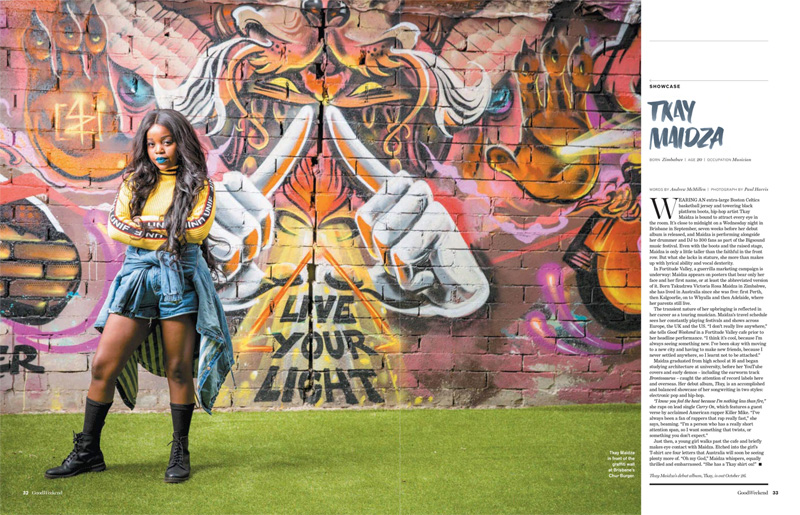
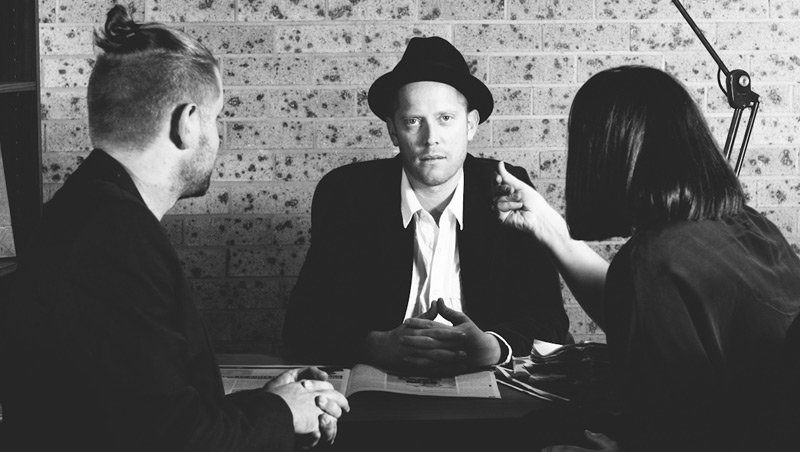


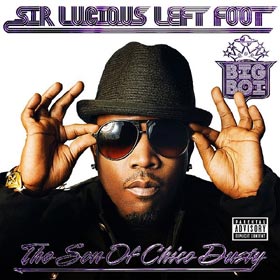
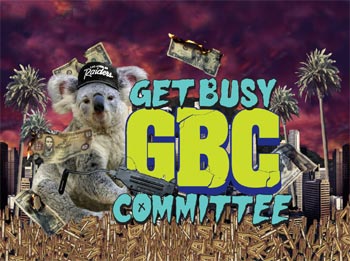 Koalas, uzis, and ‘Heartbeats’: Los Angeles-based hip-hop group
Koalas, uzis, and ‘Heartbeats’: Los Angeles-based hip-hop group 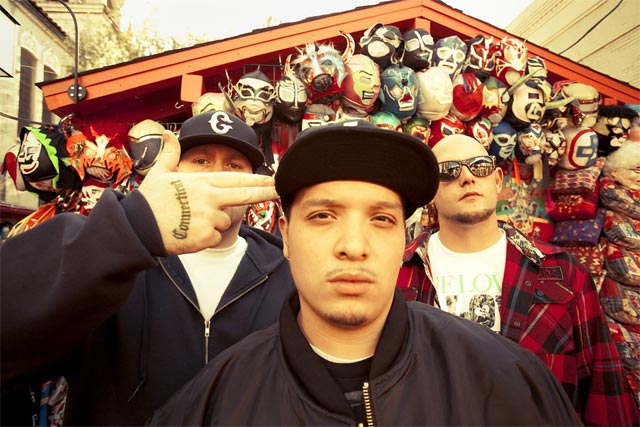
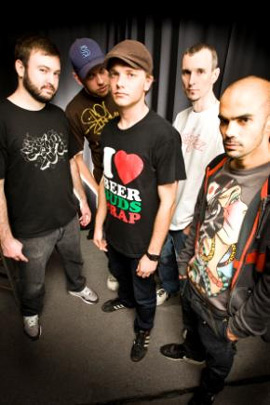 An album review for
An album review for  Former Californian hip-hop artist
Former Californian hip-hop artist  Labels won’t get away with screwing over consumers anymore, by pumping cash into one single and neglecting the rest of a project only to release a sub-par product. It’s time for everybody to step their game up!
Labels won’t get away with screwing over consumers anymore, by pumping cash into one single and neglecting the rest of a project only to release a sub-par product. It’s time for everybody to step their game up! hat advice do you have for Australian artists who think they’ve got the talent to be heard?
hat advice do you have for Australian artists who think they’ve got the talent to be heard? By ‘building everything up’, you mean your web-engaged fanbase? You think that fans actually want to connect with artists? Are you insane?
By ‘building everything up’, you mean your web-engaged fanbase? You think that fans actually want to connect with artists? Are you insane?